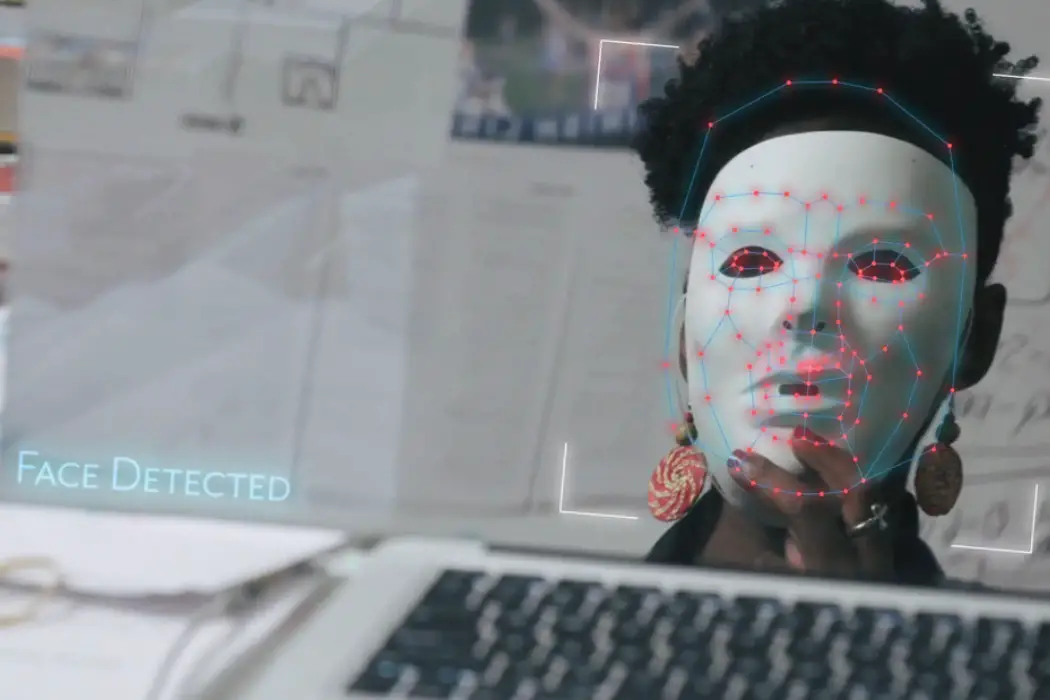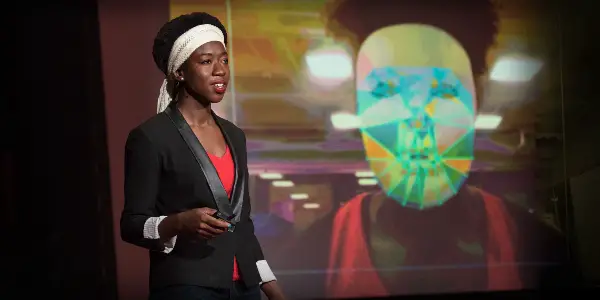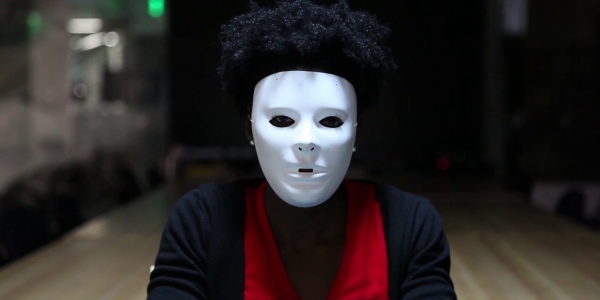SXSW 2020 Review: CODED BIAS

Stephanie Archer is 39 year old film fanatic living in…
Disclaimer: This film was previewed before the intended premiere and cancellation of SXSW 2020.
On April 15, 2013, the Boston Marathon abruptly and tragically ended as two bombers brought terror to the streets of Boston, MA. As the authorities attempted to understand what happened and who was behind the attack, it was the security cameras around the area that brought a swift knowledge to who the culprits were. Instantly, we all knew who the police were looking for – and their faces flooded the news. Yet, while in 2013 it was strictly video recording, years later the world is now looking at the implementation of facial recognition – a technology whose effects go beyond that of solving crimes.
Facial recognition is becoming a vital and necessary part of our lives – just look at the iPhone sitting next to you. Yet, with advances in technology comes a need to reexamine the appropriateness of use and the social implications it can cause. Coded Bias does just this, making its primary focus on a bias within the code and spiraling out to the abuse the technology poses both currently and in the future.
Algorithms Can Be Destructive
Coded Bias opens with a simplistic AI voice welcoming viewers into the documentary, setting the stage for the topic at hand. Its simplicity speaks to how far we have come, yet also the limited understanding we have of the technology so deeply threaded throughout our lives.
We break away from the AI, returning to real life, viewers introduced to Joy Buolamwini – a researcher at MIT. During her time as a student, she discovered a bias within facial recognition algorithms that made it nearly impossible to detect her face. A woman of color, the technology would only activate when she instead wore a white mask. As her research continued to guide her, she discovered the true problem was the bias in the database provided to the technology to learn and utilize – the data predominately consisting of white males.

From here, Coded Bias branches out into the world, bringing into the foreground the biases that exist with facial recognition software beyond the algorithm. Data is destructive and the information supplied to AI has left many to find themselves wrongfully accused, targeted by a computer whose accuracy rate is abysmal, with 98% of matches incorrect.
But it is not just government, but corporations. With little regulation in place, corporations can target users of social media or those utilizing search engines, modifying the marketing to what they are searching – even to how they are feeling. There is a question of invasion, as we in many cases unknowingly allow the coders behind the AI to invade our lives. We unwittingly provide the data in mass quantities for the coders to us and the AI to digest, completely giving ourselves to the future of technology.
There is a downside to everything…
Coded Bias drives home several vital and timely issues that rise from the creation of facial recognition and its implementation, the only problem is the documentary swiftly lays each and everyone out to its audience within the first third of the film, leaving confusion of focus and leaving the remainder felling drawn out and filler. Is this a documentary about government abuse, corporate abuse or societal bias? Each avenue is fascinating and eye opening, yet the time spent on each is drastically too short, leaving desire for a more evenly paced and structured film. While the film does circle back to each of its original points, the breaks disconnect the audience, the digestion of the information in our own minds a back and forth of memory, fighting to maintain attention and continuity.

As the documentary continues, the awareness of audience heightening, so too does the score that accompanies the talking heads and imagery on screen. There is a sense of urgency that mimics the real life need for awareness, understanding and regulation. As Coded Bias shows, AI and the use of facial recognition is swiftly becoming a human rights issue, and if not addressed soon, could eerily mirror George Orwell’s novel, 1984.
Conclusion: Coded Bias
We are living in the “Wild Wild West” of AI and facial recognition technology. As it grows exponentially, so too does our awareness need to grow. There is bias all around us, but we have a social responsibility to recognize, understand and change the biases that are infiltrating the algorithms that have become central to our daily lives.
George Orwell’s 1984 was a work of fiction, yet like many works of imagination, his timeless classic is finding a breath of truthfulness as the world descends completely into AI control. Even with its bumps along the way, Coded Bias is the cry in the dark, bringing awareness to the problems in the code, the coders and the companies and governments that enlist them. In a time where we as consumers instill unrelenting trust in the people behind the screen, there has never been a more vital documentary.
What do you think? Will facial recognition ultimately do more harm than good? Let us know your thoughts in the comments below!
Does content like this matter to you?
Become a Member and support film journalism. Unlock access to all of Film Inquiry`s great articles. Join a community of like-minded readers who are passionate about cinema - get access to our private members Network, give back to independent filmmakers, and more.













